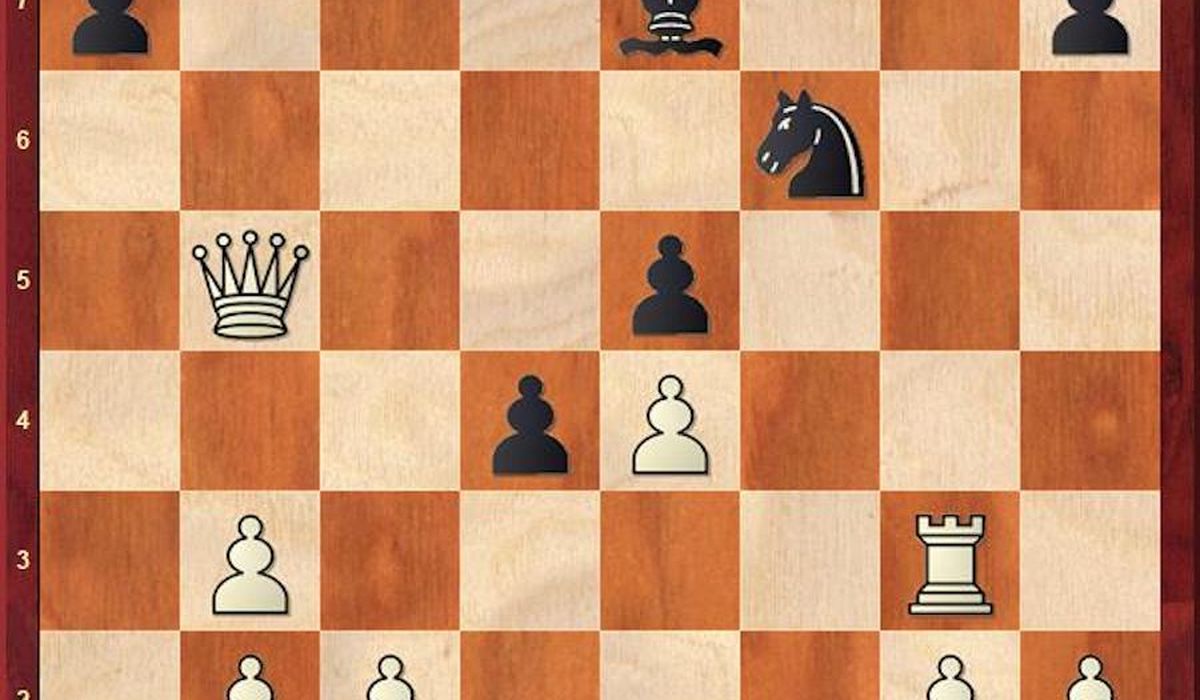
Jonathan Penrose was the epitome of that generation of fine British chess players who had all the talent in the world but lacked the time, the wherewithal and perhaps the monomaniacal ambition to scale the highest summits of the game.
Penrose, who died Nov. 30 at the age of 88, won the British national championship a record 10 times, played in eight Olympiads, was a top-ranked correspondence player and, with his victory over Soviet great Mikhail Tal in 1960, became the first Englishman to defeat a reigning world champion in more than six decades.
But chess was never a full-time job for Penrose, who had a doctorate in psychology and pursued the game as a sideline to his full-time job as a lecturer at Middlesex University. It’s a real question how far he might have gone if he devoted himself to the game full time.
A strong junior player, Penrose was one of the last living links to the game’s early modern era, defeating both former world championship challenger Efim Bogolyubov and Franco-Polish great Savielly Tartakower at the age of 16 in his first international tournament appearance in 1950. The Tartakower win was particularly impressive for so young a player.
In an O’Kelly Sicilian (2…a6), Black repeatedly passes up chances to advance his backward d-pawn, the classic freeing move in this opening; e.g. 19…d5! (instead of the game’s 20…Qc7?!) 20. exd5 Bxd5 21. Bxe5 Qb6+ 22. Kh1 Rfd8 23. Qe2 a5, and even with an extra pawn, White’s edge is minimal.
With 22. Re2 Rb8 23. Rd2, Penrose takes …d6-d5 off the table, leaving him free to whip up a powerful kingside attack: 23…Kf8 24. Nf5 h5 25. Qe2 (guarding the e-pawn to set up the next move) Bc8 26. f4! Bxf5 27. Qxh5, already threatening mate in one on h8.
With Black’s queen and f6-bishop barely holding the defense together, one last mistake leads to a lethal assault for White: 31. Re1 Qd6? (Kg7 was a tougher defense, but even in lines such as 32. Rd3 Rh8 33. Qg4+ Kf8 34. Bxf6 Qxf6 35. Rxd5 Re8 36. Re4, Black has a load of weak spots to cover) 32. Rxd5! Qb6 (Qxd5? 33. Bxf6 Ke8 34. Rxe5+ Qxe5 35. Bxe5, and the White queen neatly prevents a back-rank mate on d1) 33. Rdxe5! (bulldozing ahead; Black’s overworked pieces can’t hold the line) Bxe5 34. Rxe5 f6 (Kg7 35. f6+ Qxf6 36. Bxf6+ Kxf6 37. Qg5 mate) 35. Re6 and Tartakower sportingly let his young opponent play it out to the satisfying conclusion — 35…f3 36. Qh8+ Kf7 37. Qxf6+ Kg8 38. Qg6+ Kf8 39. Be7 mate.
And after taking time off to get his doctorate, Penrose clinched his first British championship title in style eight years later, defeating Leonard Barden (still active at 92 as the long-running chess columnist for the Guardian and the Financial Times) in a playoff with another scintillating kingside attack against the same opening.
In a Classical Sicilian, Barden as Black does get in the d-pawn advance, but two moves later unwisely releases the central tension with 16. Rf3 d4?!, allowing Penrose once again to focus unhindered on kingside attacking possibilities.
Black appears to get some scary counterplay after the sharp 18. Rh3 g6?! (Re8 may have held out longer) 19. fxg6 fxg6 20. Qxg6 Rf1+ 21. Ng1, with all White’s pieces on the first rank apparently immobilized. But Penrose’s attack is not to be deterred.
Thus 24. Qb5 Re1 (see diagram; two pawns down, Black struggles to preserve his bind) 25. Bh6!! Rxa1 26. Qxe5! Bd8, and once again White can deliver mate against an inadequately protected Black king: 27. Bg7+ Kg8 28. Bxf6+ Kf7 29. Rg7+ Kf8 30. Qd6+ Ke8 31. Re7+!, and Black resigned just ahead of 31…Kf8 (Bxe7 32. Qxe7 mate) 32. Bg7+ Kg8 33. Qd5+ Qe6 34. Qxe6 mate.
—-
I blame it on a bad New Year’s hangover, or maybe the fact that Kazakhstan has been in the news so much lately.
The print version of this column did a grave disservice to young GM and new rapid world champion GM Nodirbek Abdusattorov, getting the 17-year-old’s home country all wrong. As several readers were kind enough to let me know, young Abdusattorov hails from Uzbekistan, which is next door to Kazakhstan but a very different country.
My apologies for the mix-up. Luckily, given Abdusattorov’s very bright future, it looks like this column will have many opportunities in the coming years to get it right.
The rising Uzbek star will not be in the field, but a host of world-class players led by world champion Magnus Carlsen and American stars GMs Fabiano Caruana and Sam Shankland will compete in the 83rd Tata Masters Tournament, held in the storied chess venue of Wijk aan Zee, Netherlands, starting Friday.
Jordan van Foreest, who scored an epic upset to become the first Dutch winner of the event in 35 years in 2021, will also be back to defend his title. We’ll have full coverage in columns to come.
Penrose-Tartakower, Southsea Tournament, Southsea, England, April 1950
1. e4 c5 2. Nf3 a6 3. d4 cxd4 4. Nxd4 e5 5. Nf3 Nf6 6. Bc4 Be7 7. O-O d6 8. Nc3 O-O 9. Bg5 Nbd7 10. Re1 h6 11. Bh4 b5 12. Bb3 Bb7 13. Nd2 g5 14. Bg3 Nc5 15. f3 Rc8 16. Nf1 b4 17. Nd5 Nxb3 18. Nxf6+ Bxf6 19. axb3 Qc7 20. Ne3 Rfd8 21. Bf2 Be7 22. Re2 Rb8 23. Rd2 Kf8 24. Nf5 h5 25. Qe2 Bc8 26. f4 Bxf5 27. Qxh5 Bf6 28. exf5 gxf4 29. Bh4 Qb6+ 30. Kh1 d5 31. Re1 Qd6 32. Rxd5 Qb6 33. Rdxe5 Bxe5 34. Rxe5 f6 35. Re6 f3 36. Qh8+ Kf7 37. Qxf6+ Kg8 38. Qg6+ Kf8 39. Be7 mate.
Penrose-Barden, British Championship Playoff, London, 1958
1. e4 c5 2. Nf3 Nc6 3. d4 cxd4 4. Nxd4 Nf6 5. Nc3 d6 6. Be2 e5 7. Nxc6 bxc6 8. O-O Be7 9. f4 O-O 10. Kh1 Nd7 11. Bc4 Nb6 12. Bb3 Be6 13. f5 Bxb3 14. axb3 d5 15. Qg4 Kh8 16. Rf3 d4 17. Ne2 Nd7 18. Rh3 g6 19. fxg6 fxg6 20. Qxg6 Rf1+ 21. Ng1 Qg8 22. Qxc6 Nf6 23. Rg3 Qc8 24. Qb5 Re1 25. Bh6 Rxa1 26. Qxe5 Bd8 27. Bg7+ Kg8 28. Bxf6+ Kf7 29. Rg7+ Kf8 30. Qd6+ Ke8 31. Re7+ Black resigns.
• David R. Sands can be reached at 202/636-3178 or by email at dsands@washingtontimes.com.








